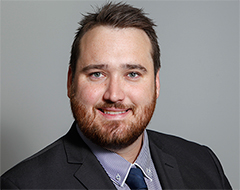 If a person dies without a Will, this is known as dying “intestate”.
If a person dies without a Will, this is known as dying “intestate”.
An intestate Estate is divided in accordance with the formula set out a piece of legislation called the Succession Act NSW 2006.
Distribution typically works as follows:
1. Firstly, any debts of the Estate (for example mortgages, loans, or other creditors) need to be paid first.
2. If there is anything left over, it is divided as to:
(i) The deceased’s spouse;
(ii) If the deceased died leaving a spouse and children other than children of the relationship with the spouse, then the spouse gets what is known as a statutory legacy and shares the remainder with the deceased’s children of the former relationship;
(iii) If the deceased died leaving no spouse, but leaving children, then the Estate is divided between the deceased’s children in equal shares;
(iv) If the deceased died leaving no spouse and no children, then the Estate is divided amongst the deceased’s parents in equal shares;
(v) If the deceased died leaving no spouse, no children, and no parents, then the Estate is divided equally between the siblings of the deceased.
3. The legislation goes on to include aunts and uncles, and in some circumstances cousins, and essentially creates a list of which family members of the deceased person takes priority.
4. If a person dies leaving no living relatives then the Estate will pass to the government. There is a provision in the legislation however whereby a person who has some moral claim on the Estate (for example, a long term carer or friend) can make an application for the Estate to be awarded to them rather than to the government.
It is very rare that the government receives a person’s Estate because there is usually a living relative entitled somewhere along the line.
The legislation is designed so that if a person dies without a Will their Estate goes to the people who would generally be expected to receive it. However everybody’s situation is different and it may be the case that you want to leave your assets to someone other than those who would take priority under the legislation. Alternatively, you might want to make a specific gift to a specific person, which will not otherwise occur if you die without a Will.
The best way to make sure your assets end up with who you want them to is to make a Will. The process need not be complicated and is relatively inexpensive in most circumstances.
If you would like to talk about making a Will you can get in touch with us on 4704 9991 for an obligation free consultation with one of our solicitors.

Daniel McKinnon
Since graduating with two degrees in Law and Commerce from the University of Wollongong, Daniel’s spent over ten years solving a wide range of legal problems for the people of Western Sydney.
